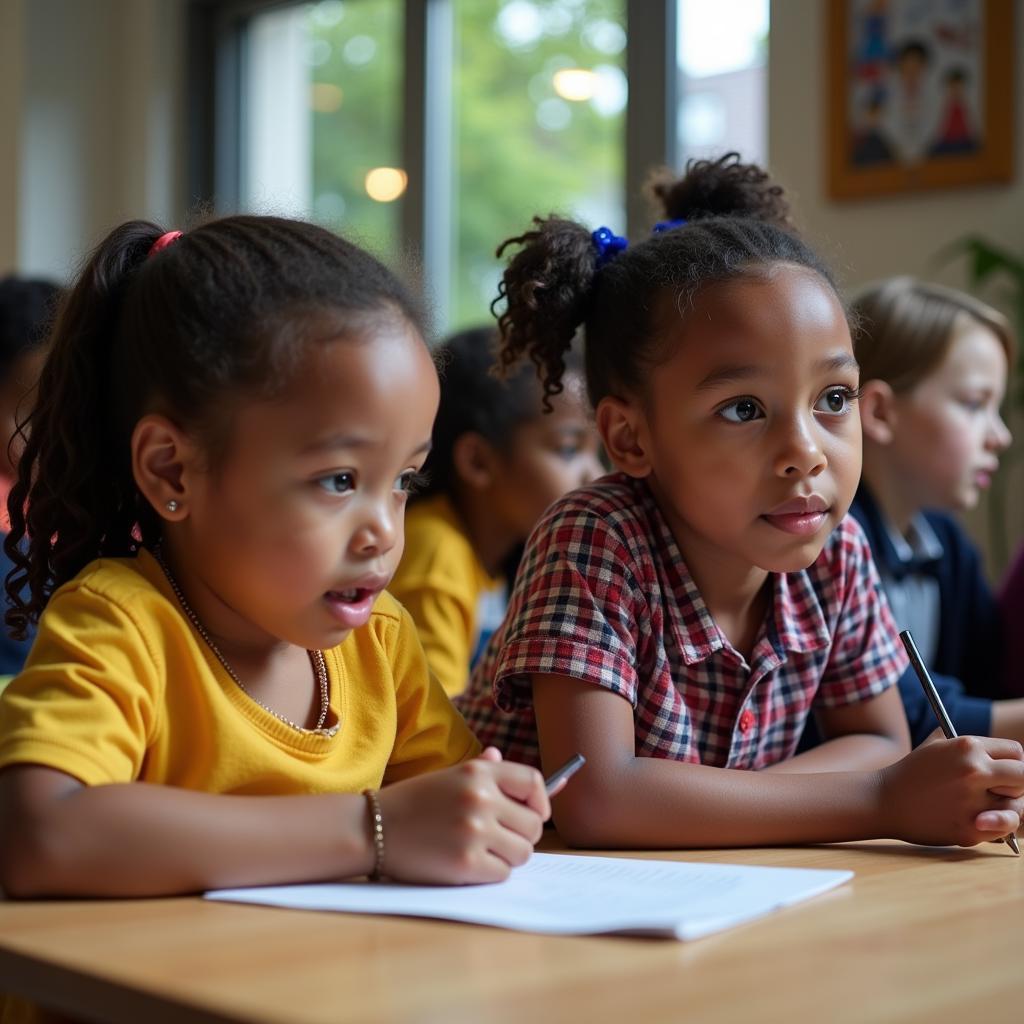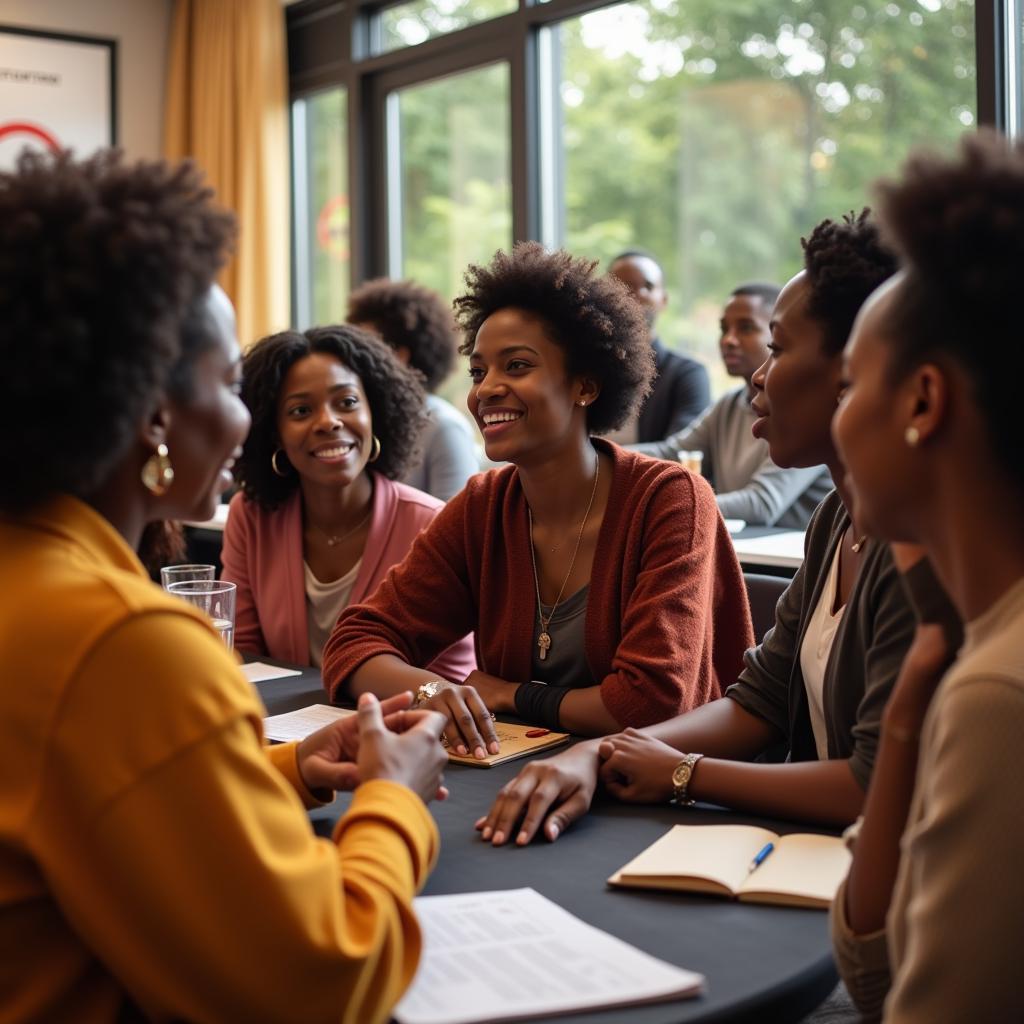Unveiling the Stories of African German Children
African German Children represent a unique intersection of cultures, histories, and identities. This article delves into the multifaceted experiences of these children, exploring their heritage, navigating their dual identities, and celebrating their contributions to both African and German societies.
Exploring the History of African German Children
The history of African German children is complex and often overlooked. It’s intertwined with Germany’s colonial past in Africa, including countries like Namibia, Togo, Cameroon, and Tanzania. Following World War I, Germany lost its African colonies, but the legacy of these colonial relationships continued, impacting generations to come. The presence of African German children is a testament to this history. These children, often born from interracial relationships during the colonial era and beyond, have played a vital role in shaping the cultural landscape of both Germany and Africa. Their stories often reflect the challenges of navigating multiple cultural identities and the search for belonging.
During the colonial period, the lives of African German children were often fraught with difficulties. They faced discrimination and social stigma due to their mixed heritage. Many were denied basic rights and opportunities. Understanding this historical context is crucial for appreciating the resilience and strength of these communities today. african american in namibia This article highlights some of the challenges faced by African Americans in Namibia.
The Dual Identity: Navigating Two Worlds
What is it like to grow up with two distinct cultural heritages? African German children often navigate a dual identity, embracing both their African and German roots. This can be a source of strength and richness, allowing them to connect with diverse communities and perspectives. However, it can also present challenges. They may face questions about their belonging, grapple with stereotypes, and struggle to reconcile seemingly conflicting cultural values.
Many African German children find creative ways to bridge their two worlds. They may participate in cultural events that celebrate both their African and German heritage. They might learn multiple languages, allowing them to communicate with family members and friends from both cultures. This blending of cultures can lead to a unique and enriching life experience. south african names South African names offer a rich tapestry of cultural influences.
Celebrating the Contributions of African German Children
African German children have made significant contributions to both German and African societies. Their unique perspectives and experiences enrich the cultural tapestry of both continents. They are artists, musicians, writers, athletes, and entrepreneurs, contributing to the vibrancy and diversity of their communities. By sharing their stories and celebrating their achievements, we can foster greater understanding and appreciation for the richness of intercultural experiences.
These children often act as cultural bridges, fostering connections between communities and promoting cross-cultural dialogue. They challenge preconceived notions about identity and belonging, paving the way for a more inclusive and interconnected world. They are living examples of the power of cultural exchange and the beauty of diversity. african american names that start with r Consider these names for more insights into African American naming traditions.
Conclusion: Embracing the Rich Tapestry of African German Experiences
African German children represent a vibrant and dynamic community, embodying the intersection of two rich cultures. Their stories are essential for understanding the complex history of German-African relations and the evolving nature of identity in a globalized world. By continuing to explore and celebrate their experiences, we can learn valuable lessons about cultural exchange, resilience, and the power of embracing diversity. Remember, African German children are an integral part of the global community, and their contributions deserve recognition and celebration.  African German children learning the German language in a classroom setting, demonstrating their integration into German society. african boerboel rottweiler Learn about this powerful breed with African origins.
African German children learning the German language in a classroom setting, demonstrating their integration into German society. african boerboel rottweiler Learn about this powerful breed with African origins.
FAQ: Common Questions about African German Children
-
What challenges do African German children face? They may encounter identity issues, cultural misunderstandings, and societal prejudices.
-
How can we support African German children? Promoting inclusive environments, celebrating their heritage, and providing resources for cultural education are key.
-
What is the significance of their dual identity? It offers a rich perspective and fosters cross-cultural understanding.
-
How do they contribute to society? They bring diverse talents, perspectives, and experiences, enriching both African and German cultures.
-
Where can I learn more about their stories? Research online, explore cultural centers, and connect with community organizations.
-
What are some resources for African German families? Look for organizations that support multicultural families and offer cultural programs.
-
How can we celebrate their heritage? Attend cultural events, support African German artists, and learn about their history.
Need Support? Contact Us!
For any assistance or further inquiries, please don’t hesitate to contact us:
Phone: +255768904061
Email: [email protected]
Address: Mbarali DC Mawindi, Kangaga, Tanzania.
We have a dedicated 24/7 customer support team ready to assist you.


